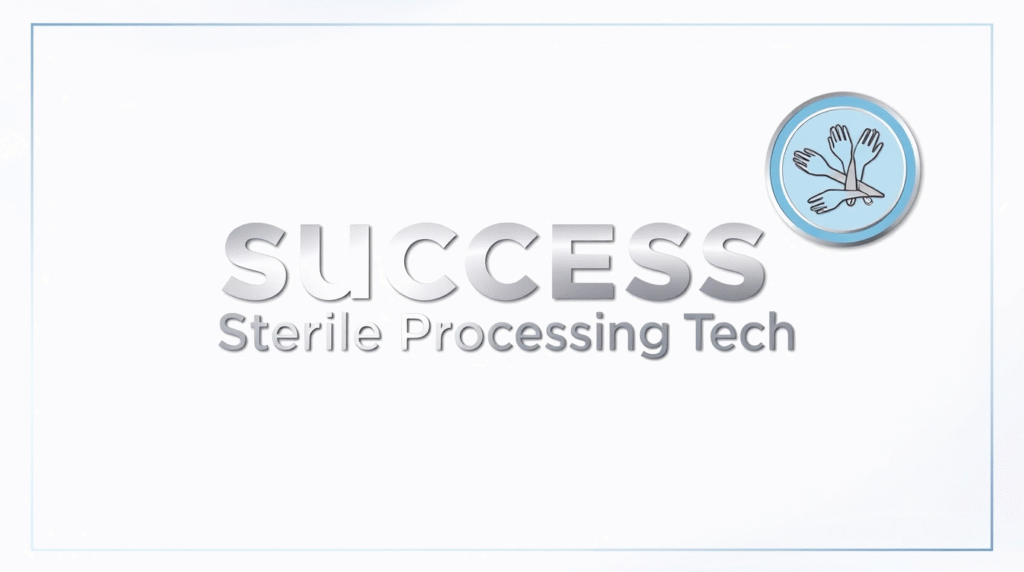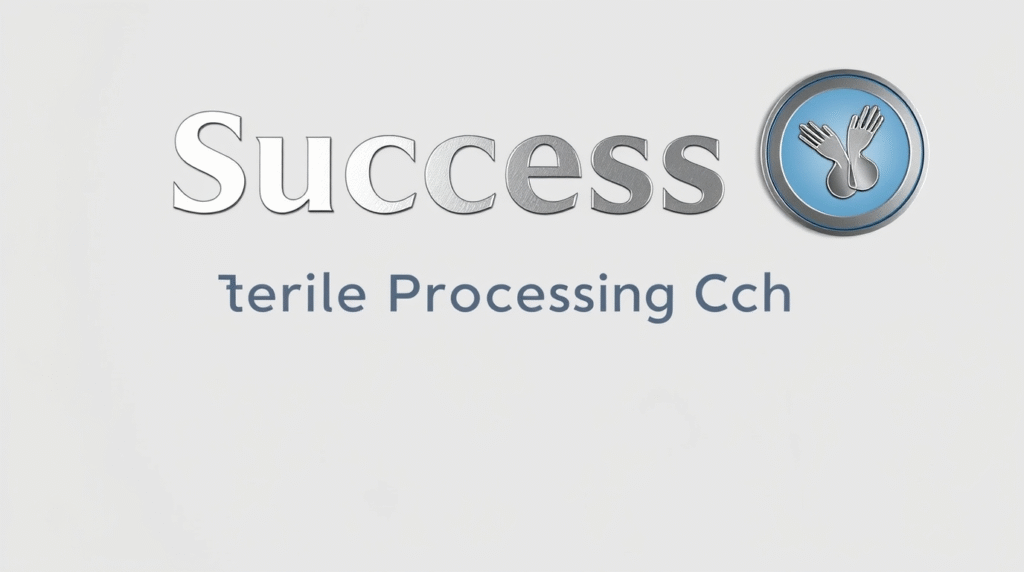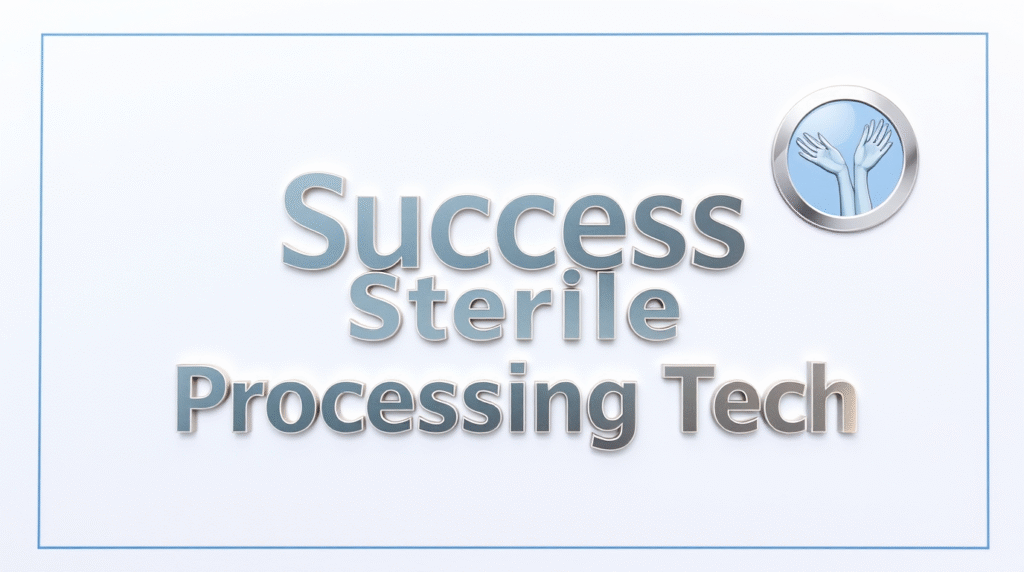When I first heard about the job of a Sterile Processing Tech Certification, I didn’t realize how important this role was in keeping hospitals safe. These professionals work behind the scenes to clean, disinfect, and prepare surgical tools that doctors and nurses rely on every single day. Without them, surgeries and medical procedures simply couldn’t happen safely.
Getting a sterile processing tech certification is the key step toward entering this rewarding and respected career. Certification not only opens job opportunities but also builds trust, skill, and confidence in a healthcare setting. In this detailed guide, I’ll walk you through everything you need to know—from what the certification is to how to prepare, pass, and grow your career.

What Is a Sterile Processing Technician?
A Sterile Processing Tech Certification (SPT) is a healthcare professional responsible for cleaning, sterilizing, and maintaining surgical instruments and medical equipment. They ensure that every tool used in patient care is safe, disinfected, and ready for use.
This role might sound simple, but it’s a critical one. Every day, SPTs protect patients from infection by following strict sterilization protocols. They use special equipment, follow standard procedures, and work closely with surgical teams.
You’ll often find sterile processing technicians working in hospitals, surgical centers, and dental clinics. Their work may go unnoticed by patients, but it’s absolutely vital to patient safety.
Why Certification Matters in Sterile Processing
Becoming certified shows that you meet national standards for safety, knowledge, and skill. Hospitals prefer or even require certified technicians because certification proves you’ve mastered sterilization science, infection control, and equipment management.
When I started preparing for my own certification, I realized how much it changed my understanding of the healthcare process. It wasn’t just about cleaning tools—it was about ensuring that lives were protected with every single instrument handled.
Here’s why certification is important:
- Professional recognition: Employers value certified professionals for their verified skills.
- Better job opportunities: Many hospitals require certification before hiring.
- Higher salary potential: Certified techs often earn more.
- Career growth: It opens doors to supervisory or specialized roles.
Types of Sterile Processing Tech Certifications
There are a few main certifications available, depending on your goals and region. Sterile Processing Tech Certification Each one demonstrates a professional level of skill and understanding.
- Certified Registered Central Service Technician (CRCST)
Offered by HSPA (Healthcare Sterile Processing Association), this is the most recognized certification. It covers decontamination, sterilization, and distribution processes. - Certified Sterile Processing and Distribution Technician (CSPDT)
Provided by CBSPD (Certification Board for Sterile Processing and Distribution), this certification validates skills in cleaning, assembling, and sterilizing medical tools. - Sterile Processing Management Certification
For professionals looking to advance into management, this certification focuses on leadership and operations within sterile processing departments.
Each certification requires a combination of work experience, training, and passing an exam.

Eligibility and Requirements
Before applying, you must meet certain eligibility requirements. Generally, you’ll need:
- A high school diploma or GED
- Hands-on experience (some programs offer internships)
- Training completion from an accredited program
Some candidates choose to gain experience first and then take the exam, while others enroll directly in a certification course that includes practical training.
When I went through my training, I found that hands-on experience made a big difference. Watching videos or reading books was helpful, but actually handling instruments in a sterile environment taught me what real precision means.
Step-by-Step Guide to Getting Certified
- Research the certification that fits your goals
Decide between CRCST or CSPDT based on your region and career plan. - Enroll in an accredited training program
Community colleges, technical schools, and online institutions offer great options. - Gain hands-on experience
Most exams require practical hours in a hospital or clinic setting. - Prepare for the exam
Study guides, flashcards, and online mock tests are helpful. Join study groups if possible. - Take the certification exam
Exams usually have multiple-choice questions covering sterilization methods, microbiology, and infection prevention. - Maintain your certification
You’ll need continuing education credits to stay certified.
How to Prepare for the Certification Exam
Studying for the sterile processing tech certification can be challenging, but a proper plan makes it easier. When I was preparing, I broke down topics by week and practiced using real-world examples.
Here’s a simple study plan that works:
- Week 1–2: Learn the basics of infection control and microbiology.
- Week 3–4: Study sterilization methods, cleaning techniques, and tool assembly.
- Week 5–6: Review equipment handling, packaging, and quality control.
- Week 7–8: Take practice exams and review weak areas.
Tips for success:
- Study in short, focused sessions.
- Watch instructional videos to visualize the process.
- Join online sterile processing communities for support.
- Use flashcards to memorize medical terms.
Job Opportunities After Certification
Once certified, you can explore several career paths:
- Sterile Processing Technician
- Central Service Technician
- Surgical Instrument Specialist
- SPD Supervisor or Manager
Hospitals, outpatient centers, and dental clinics are always in need of skilled SPTs. Some professionals even specialize further in endoscopy or surgical instrument repair.
With certification, you can expect to earn between $40,000–$60,000 per year, depending on experience and location. Some experienced techs move into management or training roles and earn even more.
Challenges and Rewards of the Job
Like any healthcare career, sterile processing has its challenges. The work can be repetitive, and attention to detail is crucial. But the reward is knowing that your effort directly protects patients from infection and supports safe surgeries.
During my early days, I remember spending long hours checking instruments under bright lights, making sure everything was spotless. It wasn’t glamorous, but when I thought about the lives depending on those tools, the work felt deeply meaningful.
How to Choose the Right Training Program
Not all programs are created equal. Look for:
- Accreditation by recognized boards
- Hands-on training opportunities
- Exam preparation support
- Flexible schedules (especially if you’re working)
Some excellent online and campus programs include options from community colleges, trade schools, and hospitals. Make sure they align with HSPA or CBSPD exam standards.

The Future of Sterile Processing Careers
The demand for sterile processing technicians is rising quickly. With an aging population and more surgeries performed each year, healthcare facilities need skilled professionals to maintain infection control.
According to recent statistics, employment in this field is expected to grow steadily over the next decade. Certified professionals will have an edge as hospitals continue to emphasize safety and compliance.
Personal Experience: My Journey to Certification
When I began my journey, I wasn’t sure if I could handle the pressure of working in a sterile processing department. But as I trained, I realized it was about more than cleaning tools—it was about being part of a team that saves lives.
The day I passed my exam, I felt proud knowing I had achieved something meaningful. My advice to anyone starting out: stay patient, practice regularly, and never underestimate the importance of your role in healthcare.
Maintaining and Advancing Your Certification
After getting certified, keep your skills sharp with continuing education. Many organizations offer workshops, webinars, and updated training sessions on infection control and sterilization technology.
You can also advance your career by pursuing:
- Leadership training for supervisory roles
- Instrument repair certification for specialized skills
- Healthcare management degrees for long-term growth
Staying current not only helps your career but also ensures patient safety and quality care.
Conclusion:
Becoming a certified sterile processing technician is more than just getting a job—it’s joining a profession that safeguards health and supports the core of modern medicine.
Through training, certification, and ongoing learning, you’ll gain not only technical skills but also purpose and pride in your work. Whether you’re just starting or looking to grow your career, sterile processing tech certification can open the door to a stable, respected, and fulfilling future in healthcare.
FAQs
1. What is a sterile processing tech certification?
A sterile processing tech certification is a professional credential that shows you have the skills and knowledge to clean, sterilize, and prepare medical instruments safely. It proves that you can handle surgical tools correctly and follow infection control standards in healthcare settings.
2. Why do I need certification to become a sterile processing technician?
Certification helps you stand out when applying for jobs. Most hospitals prefer or require certified technicians because it shows you understand how to maintain safety and follow strict sterilization procedures. It also helps you earn a higher salary and grow your career faster.
3. How long does it take to get certified as a sterile processing tech?
It usually takes 4 to 12 months to complete a training program and prepare for the certification exam. The time may vary depending on your school, study schedule, and hands-on training hours.
4. What are the best certifications for sterile processing technicians?
The two most recognized certifications are:
- CRCST (Certified Registered Central Service Technician) by HSPA
- CSPDT (Certified Sterile Processing and Distribution Technician) by CBSPD
Both are respected and widely accepted by employers across the U.S.
5. Is sterile processing a good career?
Yes, it’s a great career for people who want a stable job in healthcare without years of college. It offers steady income, job security, and the satisfaction of helping patients stay safe during surgeries and treatments.

